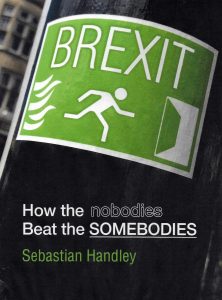
B7965 – A Boy called Szmulek, a Man named Sam by Rik Arron
Price: £9.98
ISBN: 978-1-914933-63-9
A true story of courage, love and friendship set against the darkest days of the Second World War.
When author, Rik Arron, stumbled unknowingly into the life of ninety-year-old Holocaust survivor, Sam Gontarz, he didn’t realise that they would go on a journey together into the heart of the ghettos and concentration camps of Nazi Germany.
This journey would change both their lives forevermore; and one that would illuminate some of the worst days in human history with courage, friendship, love, and a powerful message that is needed more than ever in the world today.
Written using transcripts of Sam telling his story to the author, B7965: A Boy called Szmulek: a Man named Sam takes the reader into the depths of the horrors inflicted on the Jewish population of Europe from the acquisition of power in the 1930s to the end of the Second World War.
The book includes details of daily life for many thousands in the Lodz ghetto and then in a number of concentration camps which somehow, Sam survived, including Auschwitz-Birkenau and Mauthausen. The book also includes poignant photographs of Sam and his family providing powerful imagery of life especially in Poland the middle of the twentieth century.
While dealing with dark subject matter, the book is a celebration of survival and spirit when faced with appalling adversity. The book is also essential reading for all those interested in Nazi Germany, the Second World War and European Genocide/Holocaust Studies.
Kino & Kinder – A Family’s Journey in the Shadow of the Holocaust by Vivien Sieber

Kino & Kinder – A Family’s Journey in the Shadow of the Holocaust by Vivien Sieber
Price: £17.98
ISBN: 978-1-914933-17-2
Kino and Kinder tells the fascinating, poignant but inspiring story of one family’s survival as the Nazi party’s anti-Semitic policies unfolded through the 1930s, leading to the Anschluss and then, world war.
Author, Vivien Sieber, describes how her grandmother, Paula, her father, Peter and his stepbrother, Erich, grew up in pre-war Austria before the descent into war forced them to flee for their lives alongside many other members of the Central European Jewish community.
To fulfil her obsession with the cinema, the family had purchased the Palast Kino for Paula to run in the heart of cosmopolitan Vienna. However, the rise of the Nazis forced Peter and Erich, to start new lives in the UK, and Paula to abandon her cinema and join them. She then became involved with a hostel for young girls taken out of Europe by the Kindertransport programme.
Set against the backdrop of the holocaust, Kino and Kinder describes how Paula, Peter, Erich and their extended family faced their wartime challenges. These included Peter’s wartime internment; his and Erich’s subsequent military service for the British armed forces and Paula’s time running the hostel. After the war, the challenges continued as they traced the fate of their family members while Paula attempted to regain the ownership of her cinema; Erich forged a career in entertainment; and Peter built a business.
The book provides many wonderful details about life in Vienna, Austria and Central Europe before the Second World War and in post-war London, where the Paula, Peter and Erich continued to live. It also features interesting and informative first-hand accounts by a number of the women who had lived in the wartime hostel as young girls, in which they talk about their lives in the UK after they had been saved by the Kindertransport.
Kino and Kinder is illustrated throughout with many wonderful, evocative and historic photographs.
Dr Vivien Seiber is a retired scientist and lives in Oxford with her husband, Paul. Amongst her interests, she loves pottery. Kino and Kinder is her first book.
Red Star: Yellow Star by Agnes Kaposi

Red Star: Yellow Star by Agnes Kaposi
Price: £16.95
ISBN: 978-1-9161066-8-0
Agnes Kaposi was born in Hungary the year before Hitler came to power and she started school at the outbreak of World War II.
The Holocaust killed many of her family, together with half a million Hungarian Jews, but a series of miracles and coincidences allowed her to survive.
She worked as child labourer in the agricultural and armament camps of Austria and was liberated by a rampaging Soviet army.
She struggled through post-war hardship to re-enter Hungarian society, only to be caught up for a decade in the vice of Stalinism.
In 1956 a bloody revolution offered the opportunity to escape to Britain, a country of freedom and tolerance, where she started a family and built a career as an engineer.
The story is written with compassion and optimism, without self-pity. The tone is light, and there is plenty of irony, even humour.
The narrative is underscored by the historian László Csősz and illustrated by several maps and more than a hundred archival images and family photographs.
Author Dr Agnes Kaposi is a Fellow of the Royal Academy of Engineering, a Churchill Fellow. Dr László Csosz is historian and senior archivist of the National Archives of Hungary, and research fellow of the Wiener Holocaust Library, London.






